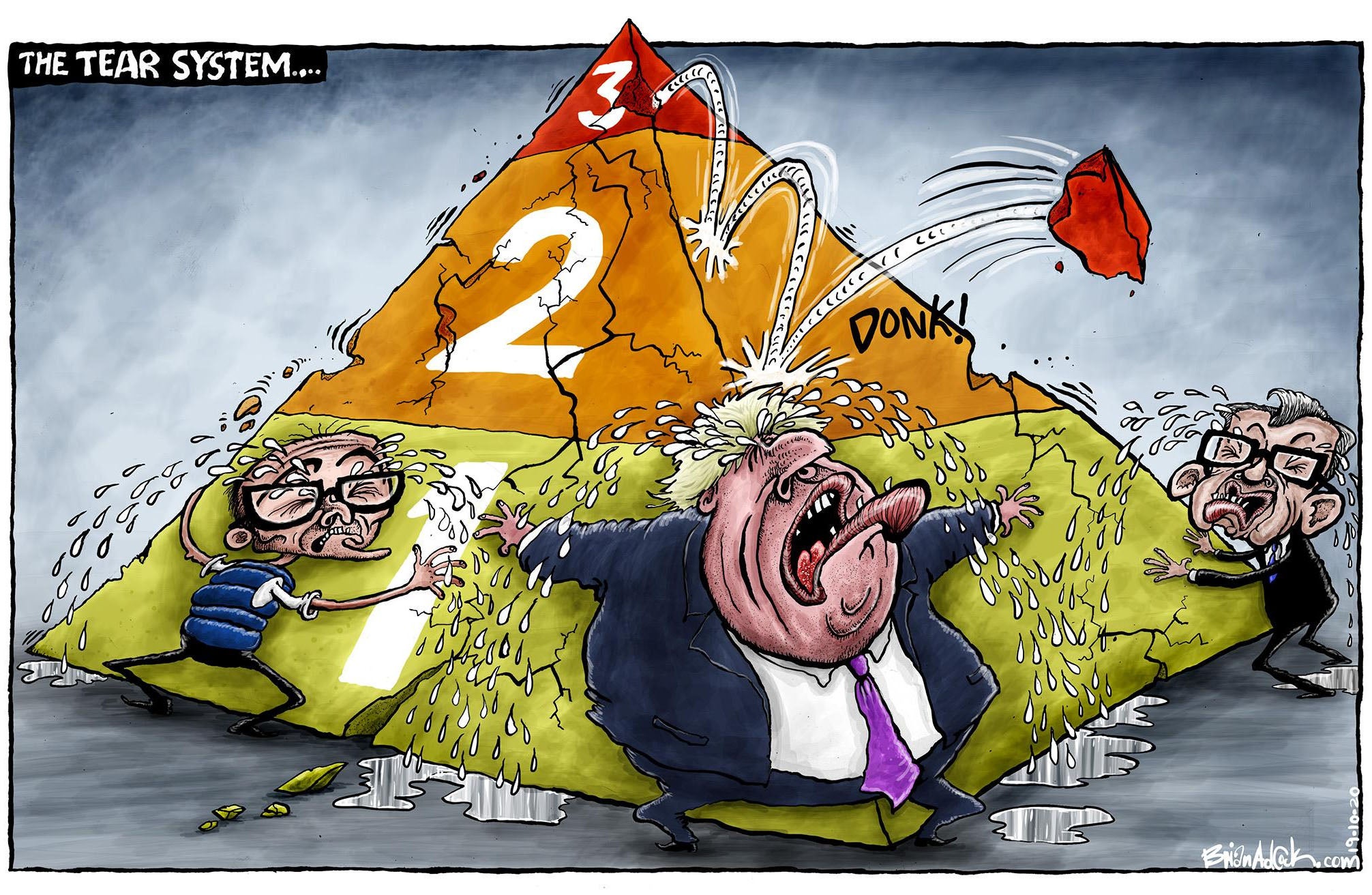Coronavirus and Brexit trade negotiations together are too much for the government to handle
Editorial: A delay in EU talks until the emergency is over would likely strengthen the UK’s negotiating position

When the Moody’s credit agency downgraded Britain’s credit rating just before the weekend, one factor it pointed to was “the weakening in the UK’s institutions and governance”.
“While still high, the quality of the UK’s legislative and executive institutions has diminished in recent years,” the agency said.
In other words, and with deep irony for a government that fancies it is taking back control of an “independent” state, Britain can’t actually run its own affairs, or at least not as competently as it ought.
That may be harsh, given the special challenges of the past few years; but the point still stands, and the election last December of a government with a nominal working majority of 87 has not been that much stronger or stable than the preceding minority administrations.
The innovation of a binding referendum and the piecemeal creation of a quasi-federal state, as well as a lower calibre of professional politicians has much to do with the current malaise. Those problems will not be dealt with rapidly. What could be prevented at the cost of a telephone call to Brussels is the prospect of a no-deal Brexit arriving during the second wave of the Covid-19 pandemic. That really would be an act of wilful misgovernment.
Apart from pride and a performative desire to be seen to act “tough” there isn’t much to be said for the UK’s present negotiating tactics. The desire seems to be to blame the EU for not playing fair, and to risk everything on a last-minute climbdown by the EU. Perhaps that will succeed, but there is a possibility it will not. The British and their fellow Europeans have misjudged and misunderstood each other before, and the recent history of the relationship might well be termed a tragedy of errors. Even in matters as portentous as this, accidents happen and games of chicken can go wrong.
It might have seemed a good idea at the time to place the end of the Brexit transition period into primary legislation. Now it looks foolish indeed. It was always the case that it was going to pile more pressure on Britain than the EU, because, as President Emmanuel Macron brutally pointed out at the EU summit last week, Britain needs the EU more than the EU needs Britain.
With the additional pressures of Covid-19 the deadline looks intolerable and unnecessary. A delay until the emergency is over would probably strengthen the UK’s negotiating position, as the strain on supply chains and the economy would be that much less. It would also save lives.
The double whammy of coronavirus and no-deal Brexit would inflict severe damage on the economy – as the former prime minister Gordon Brown pointed out this weekend – in society and on political cohesion, as indeed it already is doing.
Some regions and sectors of the economy are more exposed to Covid than Brexit, and vice versa. The unluckiest, such as tourism, are lethally affected by both. Supply chains that have survived Covid will be broken by the chaos of no-deal Brexit, and that means shortages in factories and supermarkets alike. Just at the moment when the NHS and the care sector need the skills of staff from the EU, a new wave of the virus will be taking medical and auxiliary staff out of action through infection and quarantining.
Supplies of medicines and equipment from Europe will be disrupted. The interplay of the effects of Covid-19, local lockdowns and port congestion will create a new economic crisis. As Moody’s indicates, the public finances may be overwhelmed by the scale of the loss of tax revenues.
Given the time needed to prepare a legal draft, and for all national and regional parliaments across Europe to ratify a new UK-EU trade treaty, the point of no return has probably been reached. Governments everywhere have not got the capacity to deal with coronavirus and Brexit simultaneously.
A deal might be there to be done, but it is not going to be done, and the next few months should be dedicated to suppressing the coronavirus rather than fretting about state aid, cross-border electricity supplies and fishing quotas. They can wait for calmer, healthier times.




Join our commenting forum
Join thought-provoking conversations, follow other Independent readers and see their replies
Comments